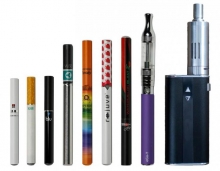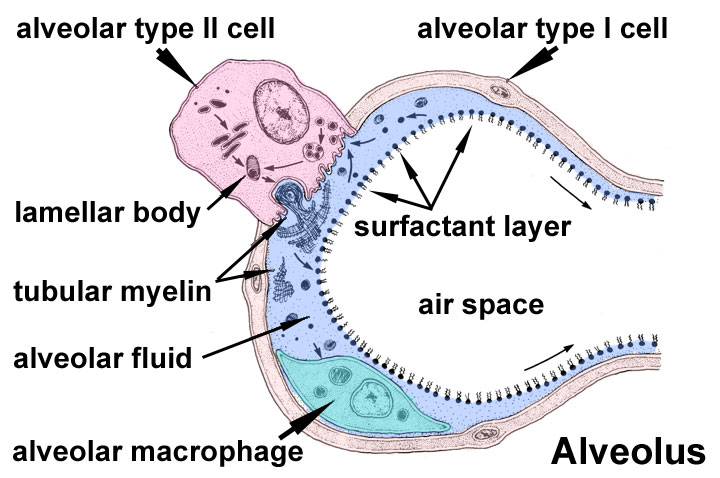Impact of E-cigarette Flavor Compounds and Additives on Pulmonary Surfactant Structure and Function
 Electronic nicotine delivery systems (ENDS) represent an emerging threat to public health both to the primary user and through second hand environmental exposures to aerosolized chemical compounds. Despite their rapidly increasing popularity, little is known about the inhalation toxicity of ENDS secondary ingredients, which include hundreds of unique flavor compounds. To investigate the environmental toxicity of a wide range of ENDS additives a fundamental study of their direct effect on the cells of the lung will be performed, focusing specifically on their impact on the cell surface of the alveoli in the lungs.
Electronic nicotine delivery systems (ENDS) represent an emerging threat to public health both to the primary user and through second hand environmental exposures to aerosolized chemical compounds. Despite their rapidly increasing popularity, little is known about the inhalation toxicity of ENDS secondary ingredients, which include hundreds of unique flavor compounds. To investigate the environmental toxicity of a wide range of ENDS additives a fundamental study of their direct effect on the cells of the lung will be performed, focusing specifically on their impact on the cell surface of the alveoli in the lungs.
 It is generally believed that flavor compounds and additives commonly found in ENDS products could lead to negative impacts on lung cell structure, pulmonary function and thus overall human respiratory efficiency. Also, a high proportion of ENDS inhalant is exhaled into the surrounding environment virtually unchanged, producing an environmental hazard to adults and children, particularly in unventilated spaces. As a result, this project will focus on both primary and secondary exposures. Exposure levels relevant to direct inhalation will also be investigated.
It is generally believed that flavor compounds and additives commonly found in ENDS products could lead to negative impacts on lung cell structure, pulmonary function and thus overall human respiratory efficiency. Also, a high proportion of ENDS inhalant is exhaled into the surrounding environment virtually unchanged, producing an environmental hazard to adults and children, particularly in unventilated spaces. As a result, this project will focus on both primary and secondary exposures. Exposure levels relevant to direct inhalation will also be investigated.
This project directly contributes to NCPC center goals by focusing on tobacco product use, which is disproportionately a health issue in the poorest areas of the California, especially the Central Valley. This work will address a number of biomedical questions, but also aims to utilize a wide range of methods to rapidly disseminate the study findings to local communities. A major issue of concern is the pace at which basic research in nicotine is communicated to community-level practices. To address the dire need to create and support a direct pipeline between basic science research and the SJV tobacco control community, this study aims to go beyond traditional academic dissemination routes and directly communicate our findings to local tobacco control advocates through white papers, a social media campaign, and direct presentations to local tobacco control coalition meetings and events.
The project also benefits from two Spanish speaking graduate students to assist with communication of results to Latino communities.
If you would like more information about this study, please contact us via email : NCPC@ucmerced.edu



